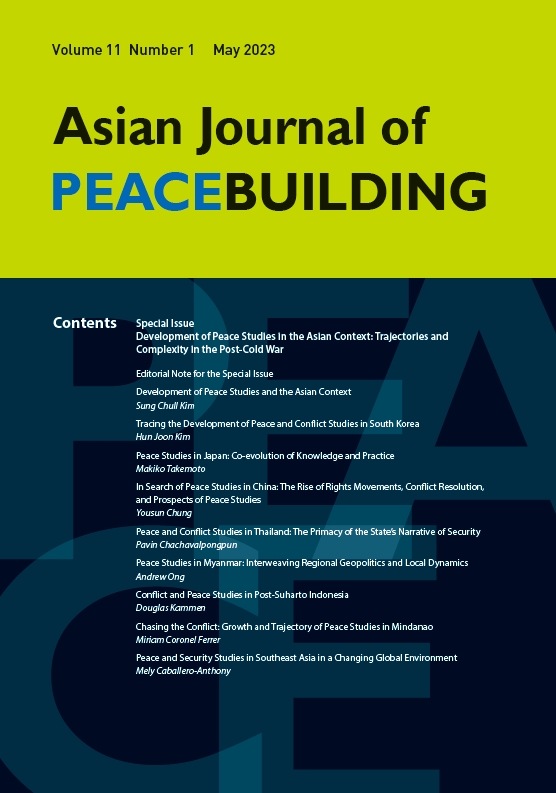The purpose of this article is to study the characteristics and patterns of the field of peace and conflict studies in South Korea by tracing its history. A reflection on peace and conflict studies in Korea shows that the 1987 democratization was a critical moment, and that the subsequent end of the global Cold War initiated the full-blown development of the field. The Korean case shows that the advancement of peace and conflict studies is linked to real-world changes. The recent inclusion of human rights and transitional justice issues is meaningful since rights and justice were core but unaddressed issues in Korea. It is time for peace and conflict studies in Korea to leap forward, and this new attention to human rights and transitional justice can be a way to lead this development.
Back Issues
Special Issue_Development of Peace Studies in the Asian Context: Trajectories and Complexity in the Post-Cold War
Tracing the Development of Peace and Conflict Studies in South Korea
Hun Joon Kim pp. 33-57 doi: 10.18588/202305.00a337
PDF Download

